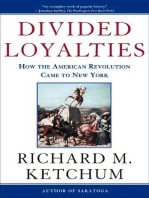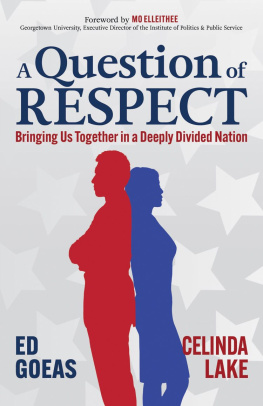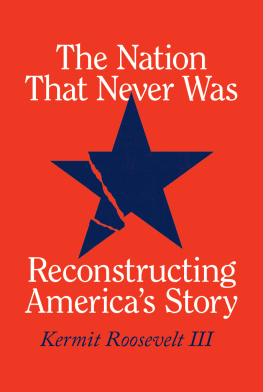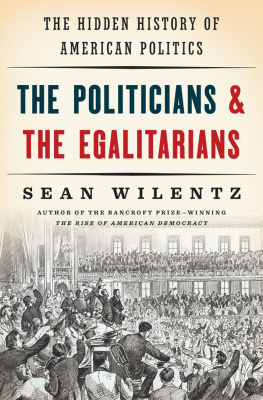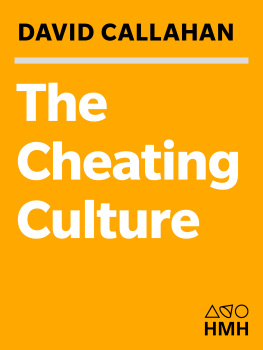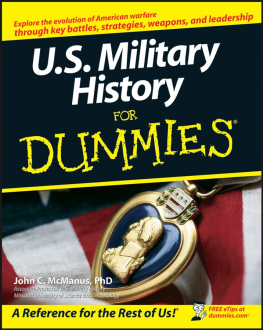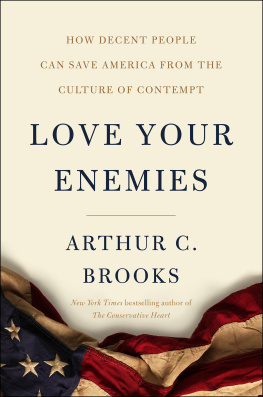First published 2009 by Paradigm Publishers
Published 2016 by Routledge
2 Park Square, Milton Park, Abingdon, Oxon OX14 4RN
711 Third Avenue, New York, NY 10017, USA
Routledge is an imprint of the Taylor & Francis Group, an informa business
Copyright 2009, Taylor & Francis.
All rights reserved. No part of this book may be reprinted or reproduced or utilised in any form or by any electronic, mechanical, or other means, now known or hereafter invented, including photocopying and recording, or in any information storage or retrieval system, without permission in writing from the publishers.
Notice:
Product or corporate names may be trademarks or registered trademarks, and are used only for identification and explanation without intent to infringe.
Library of Congress Cataloging-in-Publication Data
Trend, David.
A culture divided: America's struggle for unity / David Trend.
p. cm.
Includes bibliographical references and index.
ISBN 978-1-59451-745-7 (hbk.: alk. paper)
1. Culture conflictUnited States. 2. Social valuesUnited States. 3. Politics and cultureUnited States. 4. United StatesPolitics and governmentMoral and ethical aspects. I. Title.
HN59.2.T72 2009
306.20973dc22
2009025504
Design and composition by Cynthia Young.
ISBN 13: 978-1-59451-745-7 (hbk)
ISBN 13: 978-1-59451-746-4 (pbk)
Culture and Democracy
WORRIES ABOUT A divided America are no secret. In the wake of several evenly divided election campaigns and polls showing vast public disagreement on vital social issues, fears are on the rise that the once united states are being rived apart by conflicting views on issues such as gay marriage, immigration, and the war in Iraq. As a recent report from the Pew Center for the People and the Press put it, The red states get redder and the blue states get bluer, and the political map of the United States takes on the coloration of the Civil War. Both books argued that America had been weakened by declining cultural valuesspecifically by the abandonment of schools teaching the great books and traditions of Western thought.
These culture wars occurred in the context of a growing American fiscal crisis. A sagging dollar had resulted from rising trade imbalances between the United States and the emerging economies of Asia. Rising U.S. trade deficits would later become a major factor in the American economic collapse of 2009. Early on, many critics blamed the problems on falling intellectual standards and the failure of U.S. schools to imbue students with proper respect for traditional authority and values. Rather than maintaining high intellectual and moral standards, society had veered into a reckless permissivism in its embrace of popular culture and philosophical relativism. While The Closing of the American Mind emphasized failures in education, Cultural Literacy , as its title implies, set about detailing the specific knowledge citizens should possess. Focusing largely on factual information, Cultural Literacy advocated teaching classic texts such as the Bible, Greek myths, and the Declaration of Independence. The absence of a clear connection between cognitive and moral deficiencies was largely glossed over and camouflaged by attention-getting citations of salacious rock-song lyrics and interviews with sixteen-year-olds who couldnt identify historical terms.
These debates were summarized in James Jefferson Hunters 1991 book Culture Wars . Hunters bookwith a title that gave these conflicts a nameasserted that a new and expansive discontent had taken over the country. The contemporary culture war is not just an expression of different opinions or attitudes on this or that issue, like abortion, Hunter wrote. The culture war emerges over fundamentally different conceptions of moral authority, over different ideas and beliefs about truth, the good, obligation to one another, the nature of community, and so on.
Not everyone agrees that the United States is in the midst of a culture war. Responding to the heated discourse over the divided America are those arguing that the case for national fragmentation is generated by alarmists and opportunists. In his book Culture War? The Myth of a Polarized America , Morris Farina argues that the myth of the culture war has been invented by academics who seek to foment controversy. He states that Most Americans stand at the middle of the political landscape and are in general agreement.
These contradictory perspectives typify the growing debate between those who warn of a nation coming apart at the seams and those who argue that the culture war is little more than academic hot air. Such opposing views are collected in an anthology entitled Is There a Culture War? A Dialogue on Values and American Public Life . Assembling essays by Morris Fiorina, Gertrude Himmelfarb, Hunter, and Alan Wolfe, Is There a Culture War? promises a provocative examination of division and unity within America. What do its authors conclude? Himmelfarb says the culture wars dont exist. Fiorina, Wolfe, and Hunter blame elites, 9/11, and entrenched antagonisms, respectively.
In short, the entire discourse on the culture wars can be summed up in one statement: They are bad, really badfor all kinds of reasons. The culture wars divide Americans into opposing camps; they split up communities; they promote insecurity, instability, racism, and class conflict. Nobody likes the culture wars. But is that all there is to say about them? In the many conclusions drawn about the negative consequences of cultural conflict, one important issue seems to be ignored: the importance of disagreement in a democratic society. Those who lament spirited argument fail to acknowledge the important benefits of debate in public life. Those who would minimize disagreement want to smooth over differences inherent in a free society. They fail to remember that the great social controversies in American historyfrom the Civil War to current anti-war protestshave served to revise and improve the democracy created by Americas founders. As Thomas Jefferson said in 1786, A little rebellion now and then is a good thing.... It is a medicine necessary for the sound health of government. The lesson that moments of disagreement teach us is that democracy is always a work in progress, that it requires constant attention if it is to remain relevant to the changing needs of a growing and forward-moving society. Disagreement is what makes democracy democratic.
A Culture Divided: Americas Struggle for Unity engages the contemporary state of American politics from this perspective of disagreement and debate. In discussing some of the most divisive issues making todays headlines, A Culture Divided also examines the advances these controversies have yielded in lives of the American citizens. Some even might argue that cultural conflict is a necessary catalyst for any meaningful social change. After all, where would the United States be if it had not struggled with the issues of abortion, school prayer, racism, gay rights, and military interventionism? These bellwether issues, so fervently debated from the 1960s to the present, often seemed to turn America upside down. But along the way to consensus, the nation has engaged the kind of struggle that defines democratic life. This is not to say that the process has been easy or that fierce disagreements should be romanticized. The great culture wars of the past often brought great pain, and their resolution left many unhappy. But the process was important and necessary. And so the culture wars continue.


